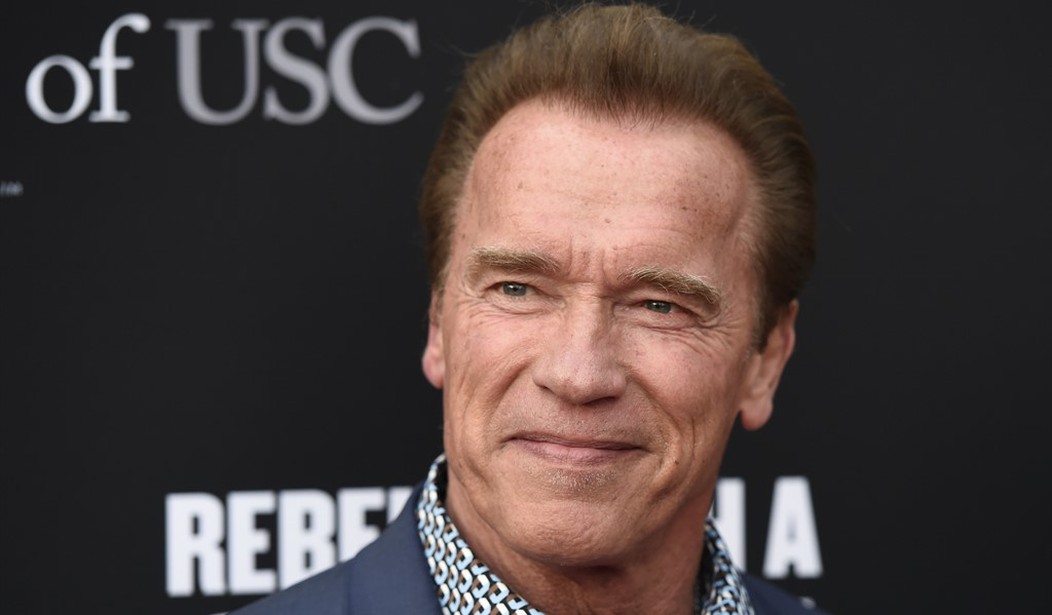Last month Californians learned that the Public Utilities Commission was considering a new plan to regulate the home solar industry. The new plan contains several elements but the bottom line is that this is a cash grab by regulators determined to tax anyone who owns solar generating equipment on a monthly basis. Today, former governor Arnold Schwarzenegger has a piece in the NY Times arguing this new plan is a terrible idea.
The California Public Utilities Commission is considering a plan that would make it too costly for many Californians to embrace solar power. A decision could come as soon as Jan. 27…
it would…include a new monthly “grid participation charge” that would average an estimated $57 a month for solar customers. People who power their homes with fossil fuels wouldn’t pay this. So let’s call it what it is: a solar tax.
This solar tax would also apply to customers who invested in batteries to store that solar energy. Battery storage is critical for the transition to clean energy and grid resilience. But this tax will only discourage that progression…
This is just another case of the big guys — the investor-owned utilities — fighting for themselves and hurting people who have invested or want to invest in solar panels…
In areas of California outside the utility commission’s control, we have already seen what happens when policies ratchet up rooftop solar costs. When the Imperial Irrigation District in Imperial Valley abandoned net metering in July 2016, residential solar installations declined 88 percent over the next two years as measured by added megawatts. The Turlock Irrigation District ended net metering at the beginning of 2015; within two years, annual residential solar installations declined 74 percent. Sacramento, sadly, is about to see this happen too.
Schwarzenegger ends his piece by calling on Gov. Newsom to “stand up” to the utilities and protect the solar industry. He notes that Newsom suggested last week the plan was in need of more work:
“That draft plan that was recently released, I just had a chance to review, and I’ll say this about the plan: We still have some work to do,” Newsom said when asked about the proposal that is scheduled to go before the California Public Utilities Commission later this month. Newsom made his remarks Monday during a wide-ranging news conference unveiling specifics of the state budget the governor is sending to the Legislature in Sacramento.
When asked another question later in the news conference about the proposal, Newsom said, “Do I think changes need to be made? Yes I do.”
The PUC operates independently so it’s not as if the governor can just order them to change the new net metering plan, but like any regulator they can be pressured by the public.
Schwarzenegger is basically correct that this new regulation is going to very swiftly lead to a dramatic decline in home solar installations. As I wrote last month, home solar makes sense financially if you can anticipate you’ll be able to pay off the cost of the hardware in a reasonable amount of time (say 10 years) and then be able to enjoy an equal or greater amount of time with effectively free power (10-15 years). But by adding the new solar tax and reducing the amount people are reimbursed for power they sell back to the utilities, the break even point for a rooftop system is now going to be pushed back many years, making the big upfront investment no longer worth it.
The plan as explained by the PUC doesn’t even make sense. Supposedly the goal is to push people to get more battery storage but as Schwarzenegger points out, people aren’t likely to invest in batteries if the cost of a solar system to charge the batteries goes up so much that they can’t even afford to install the panels. At a minimum, the PUC would need to agree to drop the solar tax on any system that includes a battery.
In my case, I had solar installed last year but did not buy a Tesla Powerwall because, at the time, they were $12,000 each. That would have eaten up much of the saving I hoped to see over the lifetime of the system. Yes, having the battery would save me a bit more money (since I wouldn’t have to pay for energy during peak hours) but not nearly enough to offset the cost of the battery pack itself.
If California wants more people to install batteries it would need to subsidize the batteries, not increase the cost of a system. What the PUC is doing is going to kill the residential solar industry in the state, all so the utilities can squeeze more money out of its customers even as the state continues to issue flex power alerts every summer because the utilities can’t keep up with demand. It just makes no sense.








Join the conversation as a VIP Member